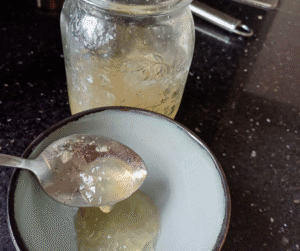Telomeres, Longevity, and Stress: How Stress Management Can Promote Cellular Health

Over the past decades, science has unveiled how our emotional experiences and lifestyle choices impact health and longevity at the cellular level. The biology of telomeres, those protective caps at the ends of chromosomes, and the enzyme telomerase discovered by Nobel laureate Elizabeth Blackburn are now central to a growing understanding that connects neuroscience, psychology, and daily practices.
What Are Telomeres and Telomerase?
Telomeres are protective segments of DNA at the ends of our chromosomes, similar to the plastic tips on shoelaces. When they shorten, the chromosome is at greater risk, and accelerated shortening is linked to premature aging and age-related diseases.
Telomerase is the enzyme that repairs and lengthens telomeres. In young cells, stem cells, and germ cells, telomerase remains active, keeping telomeres healthy. In most adult somatic cells, activity drops off, leading to gradual telomere shortening as we age.
Stress, Longevity, and Telomere Health
Elizabeth Blackburn, together with Elissa Epel, found that chronic psychological stress speeds up telomere shortening, the cellular clock of aging. People exposed to high levels of long-term stress show much shorter telomeres equal to several years of additional biological aging.
Stress affects our cells through:
Activation of the hypothalamic-pituitary-adrenal (HPA) axis
Increased glucocorticoid hormones and oxidative stress (ROS)
Inflammatory processes that harm telomeres
Examples of Stress Reduction Techniques
A wide range of mind-body and lifestyle interventions, such as meditation, mindfulness practices, physical exercise, various bodywork techniques (including Shiatsu and acupuncture), and energy therapies (like Reiki), have been studied for their roles in reducing stress and supporting cellular health.
Meditation and Mindfulness
Techniques such as mindfulness and various forms of meditation are the most robustly studied. Evidence shows that regular meditation can stimulate telomerase activity, increase telomere length, and help slow down cellular aging. The benefits are attributed to stress reduction, improved emotional regulation, lower cortisol, increased melatonin, and decreased inflammation and oxidative stress.Physical Exercise
Exercise is consistently found to buffer the negative effects of chronic stress on telomere length. Even simple, regular physical activity can help maintain telomere health, partially through its impact on psychological stress and metabolic health.Bodywork Techniques
Stress-reducing practices including Shiatsu massage and acupuncture have been linked to increased relaxation and improved stress resilience. While evidence for direct effects on telomerase remains limited, these approaches may help preserve telomere length by promoting overall well-being.Energy Therapies
Practices like Reiki are associated with lower perceived stress and enhanced relaxation. Although direct molecular effects on telomerase have not been clearly established, reducing psychological and neuroendocrine stress may support healthy telomere dynamics.Neuroeducational and Art-Based Approaches
Activities such as neuroeducation, yoga, and art therapy, when integrated into stress management programs, may help slow telomere shortening by fostering emotional balance, self-awareness, and relaxation. Emerging evidence suggests their capacity to relieve stress might positively influence cellular aging, although more research is needed.
Optimism, Compassion, and Emotional Intelligence
Not only meditation, but also dispositional optimism, compassion, and emotional intelligence are strongly associated with longer telomeres. Practices that cultivate acceptance and self-compassion, often central to meditation and energy healing approaches, help buffer the effects of stress on cellular aging.
Implications for Lifestyle and Health
Integrating scientifically validated practices (like meditation) as well as promising holistic approaches (EFT, Shiatsu, Reiki), can contribute to stress reduction, emotional balance, and potentially cellular longevity. The key is consistency and holistic engagement: each practice that lowers chronic stress may have an influence on the health and lifespan of your cells.
Conclusion
“Science shows that it’s never too late to influence your telomeres in a positive way,” write Blackburn and Epel in The Telomere Effect. Through mindful choices, you can improve cellular well-being and, with it, the quality of life.
Let science guide you toward healthier longevity: start with psychological well-being, and your telomeres will thank you!







